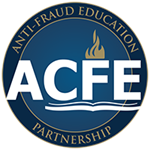Unlock Your Career Potential
This program is designed to help you prepare for accounting and financial management careers in many professional contexts. The skills you gain in this program translate to most industries in the public and private sectors. UMGC courses are taught by experienced faculty and address skills and competencies that are highly valued by today’s employers.




/blog-masters-accounting-financial-management-linklist-shutterstock-1666851595.jpg)




